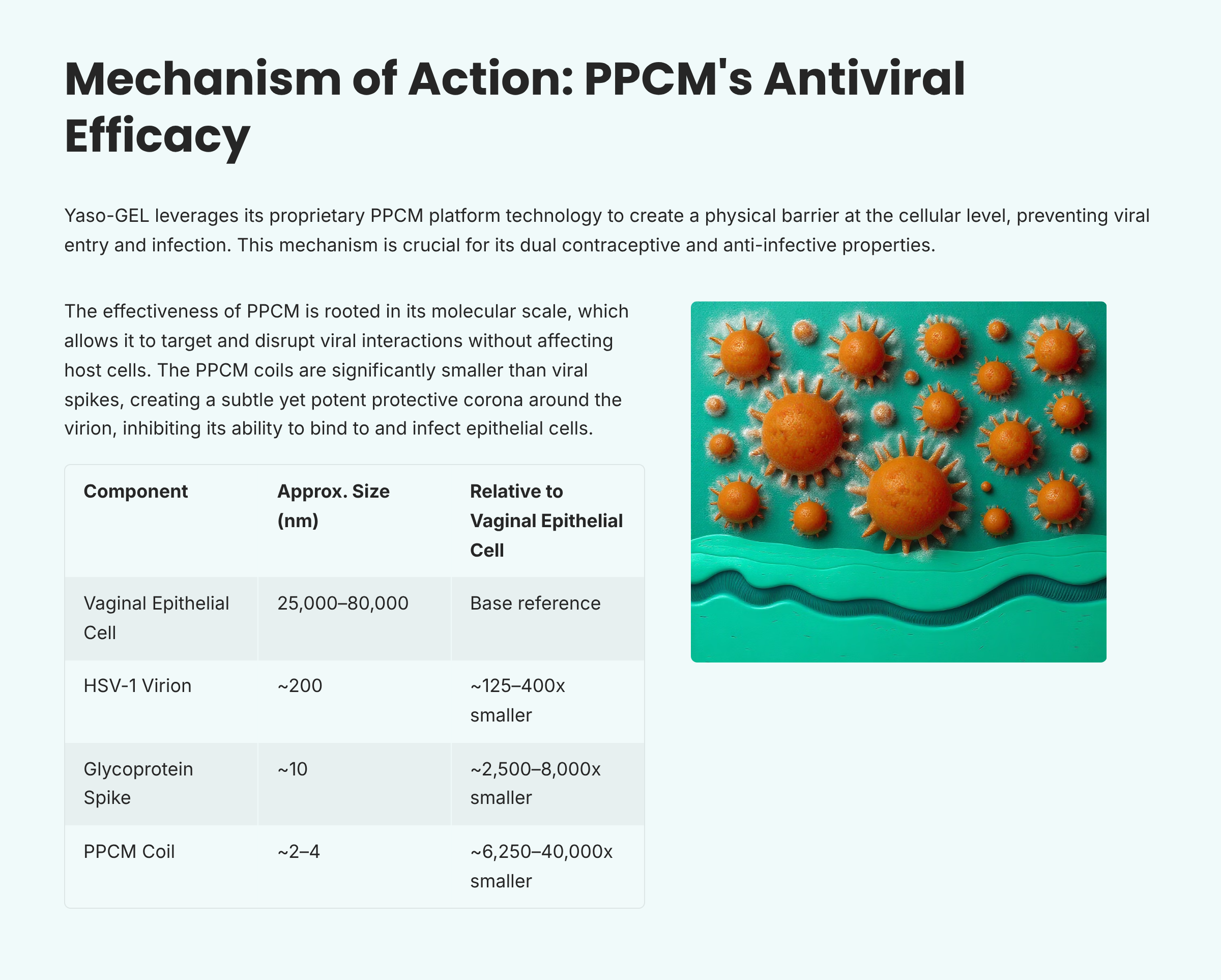
Polyphenylene carboxymethylene (PPCM) is a promising technology platform. It is well-characterized, and shows broad-spectrum activity. PPCM is being tested in Phase 1 real-world application for contraception, and offers the potential for additional complementary anti-infective applications - a multi-purpose upside for investors. PPCM is affordable, globally-scaleable, and de-risked through years of testing. PPCM has the potential to solve real-world problems, “here-and -now.”
As a contraceptive, PPCM causes sperm to immediately lose the acrosome. Since the acrosome releases enzymes such as hyaluronidase upon contacting the ovum, facilitating fertilization, no acrosome, no enzymes and thus no fertilization. PPCM is not strictly a spermicide because it does not injure cells, including sperm – it simply renders sperm infertile. PPCM does not affect lactobacillus, is anti-inflammatory and has been shown to be safe in oral and intravenous acute toxicology as well as repeated-dose topical irritation studies.
As an anti-viral, PPCM interferes with attachment and fusion of virus to specific receptor sites on the host cell, as well as interfering with entry. In vitro studies indicate PPCM significantly deters herpes simplex, papilloma virus, HIV, SARS-CoV2 and Ebola virus infections. PPCM is a nanoscale polymer (~2–4 nm hydrodynamic size) whose antiviral activity derives from interactions at the nanometer scale. By forming hydrated nanoscale coils, PPCM selectively coats and masks HSV glycoproteins (~10 nm), preventing viral attachment and fusion with epithelial cells. This nanoscale mechanism places PPCM within the domain of nanotechnology-enabled therapeutics, aligning with NIH’s and FDA’s definitions of nanotechnology in medicine.
PPCM is also highly effective against all strains of gonorrhea, suggesting future drug products to prevent and possibly treat.

